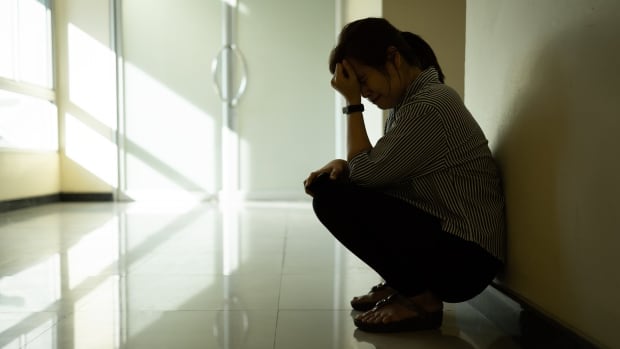Thatcher speech invitation sparks calls for Sask. to fund longer-term housing for people fleeing abuse
A Saskatchewan MLA inviting Colin Thatcher — a former cabinet minister convicted of the first-degree murder of his ex-wife — to the government’s recent throne speech prompted backlash, mass outrage and even international media coverage.
It also led to renewed calls for the province to provide operational funding to second-stage shelters — secure, subsidized apartments in buildings with both security and social workers, where women and children escaping abusive situations can typically stay six months to two years.
“It shouldn’t take international, national embarrassment, outrage from survivors and people right across this province,” said Opposition NDP Leader Carla Beck to reporters after question period Monday.
“It warrants not only good words. It warrants actions.”
At second-stage shelters, women are protected by security doors, video surveillance and bulletproof windows while they receive counselling for complex issues including trauma, addiction and poverty, and get support to become independent.
“It offers some stability after people have come through really tumultuous and dangerous times,” said Crystal Giesbrecht, research and communications director at the Provincial Association of Transition Houses and Services of Saskatchewan.
“To be able to stay somewhere for a year or more is really important and necessary for survivors and their children.”
Saskatchewan, Ontario and Newfoundland and Labrador are the only provinces that don’t give second-stage shelters any operational funding. In other places, it’s piecemeal from year to year.
Saskatchewan also has the highest rate of reported intimate partner violence among all provinces and more than double the national rate, according to the most recent Statistics Canada data, from 2019.
Without stable, long-term funding to pay for staff and programs, many of Canada’s second-stage shelters have told CBC News that they can’t expand and open up more apartments.
“In Saskatchewan we see there’s definitely a need for more second-stage shelter spaces. These spaces are being used and they’re often full,” Giesbrecht said.
For example, 34 families are currently on the wait-list at Regina’s SOFIA House, according to its executive director Tmira Marchment.
Crisis shelters exist in Saskatchewan, but abuse victims and shelter workers told CBC News it’s unrealistic for them to expect to live safely and independently in the community after short-term stays, which are often just 30 days.
Violence rates ‘too high’: justice minister
Saskatchewan Justice Minister and Attorney General Bronwyn Eyre has acknowledged Saskatchewan’s intimate partner violence (IPV) rates are “too high.”
“We do all want to be in this together and … continue to raise the alarm about rates that are too high and what we can do to be responsive to that here in Saskatchewan,” she told Radio-Canada on Monday.

Eyre said the government will consider second-stage core funding, but didn’t make any promises.
“It is the natural next step to look beyond intervention and prevention and that emergency where women and people who are facing violence have to immediately find somewhere to go,” she said.
The government is currently in talks with SOFIA House about funding, according to Marchment. She hopes she can “spread awareness about how important these services are, and how long-term housing supports are critical in changing the grim statistics around IPV in our province.”


